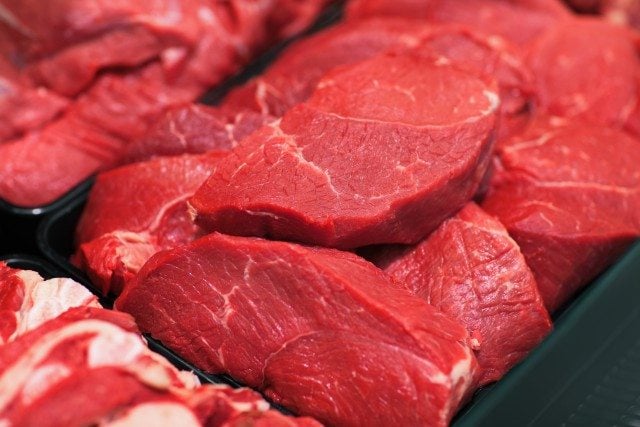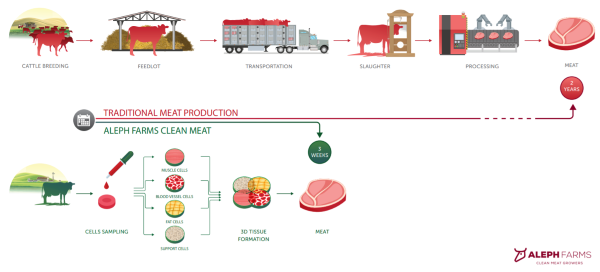Israeli company Aleph Farms has kicked off the first cell-grown minute steak, delivering the full experience of meat with the appearance, shape, and texture of beef cuts.
The food tech start-up’s new product demonstrates its capabilities for growing different types of natural beef cells isolated from the cow into a fully three dimensional (3D) structure similar to conventional meat.
The breakthrough obtains the true texture and structure of beef muscle tissue steak, as well as the flavor and shape.
The company has successfully grown slaughter-free steak, without the need for devoting vast tracts of land, water, feed, and other resources to raise cattle for meat and uses no antibiotics.
Cell-grown meat is typically grown from a few cells of a living animal, extracted painlessly.
These cells are nourished and grow to produce a complex matrix that replicates muscle tissue.
One of the barriers to grown meat production has been getting the various cell types to interact with each other to build a complete tissue structure as they would in the natural environment inside the animal.
The challenge is to find the right nutrients and their combination that would allow the multicellular matrix to grow together efficiently, creating a complete structure.
The company overcame this obstacle using aa bio-engineering platform developed in collaboration with the Technion – Israel Institute of Technology, Haifa.
However, creating such a steak needs to offer taste, flavor, texture, Didier Toubia, co-Founder and CEO tells Food News International.
“Then, the other issue is to product the meat at large scale and low cost.”
“We address the first issue with Alephs proprietary 3D technology co-developed with the Technion,” he says.
“This platform allows for growing actual muscle tissue (meat) outside the body, made of different types of cells growing together into a 3D structure similar to conventional meat.”
It involves innovative approaches related to an animal-free growth medium to nourish the cells, and bioreactors – the tanks in which the tissue grows.
The company envisions the meat to be sold at restaurants and food services before reaching the retail’s shelves.
As to in whcih country it will be sold, Toubia says it will “depend much on regulation”.
“The main consumer target is the ‘flexitarians’, who do eat meat, but are sensitive to the issues associated with the conventional production of meat. Most of them are in the 25-45 age range,” he adds.











